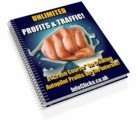 License Type: Master Resell Rights
License Type: Master Resell Rights  File Size: 1,757 KB
File Size: 1,757 KB File Type: ZIP
File Type: ZIP
 SKU: 5069
SKU: 5069  Shipping: Online Download
Shipping: Online Download
Ebook Sample Content Preview:
To make a budget you must first calculate your total income, and then add up your total expenditure and then work out the difference between the two. The result is either money left over (a surplus) or not enough money to cover your spending (a deficit). The aim is to try to make a surplus to have spare cash to save for goals or to reduce personal debt.
To make an accurate budget it will be necessary to have a note of all day to day spending. Keeping receipts off all expenditure will help with this.
All bank statements and bills will indicate where money is being spent on payments such as rent, hire purchase and power. It will also be necessary to include a list of any annual costs such as vehicle licensing, insurances, holidays and gifts. A list of all monies received such as wages, allowances, interest and benefits is essential.
If there is a surplus then a decision can be made on a percentage of the income that is to be saved to improve the financial position. If there is a deficit then it will be necessary to see how spending can be reduced or if it is possible to increase income.
There is a great deal of advice available on how expenditure can be reduced and this can be readily obtained free of charge from libraries and voluntary budgeting advisory services. Extra income can be obtained by extending the number of hours worked if that is possible or obtaining a better paid position.
If neither of those is possible then ways could be found to achieve a passive income such as taking in boarders or home stay students.
A most important thing to remember when drawing up the budget is that budgets which are too tight are less likely to be maintained well.








